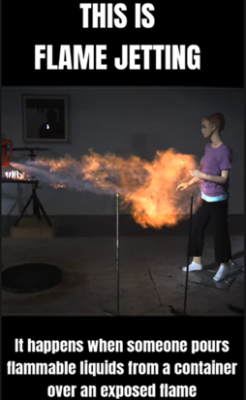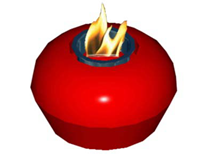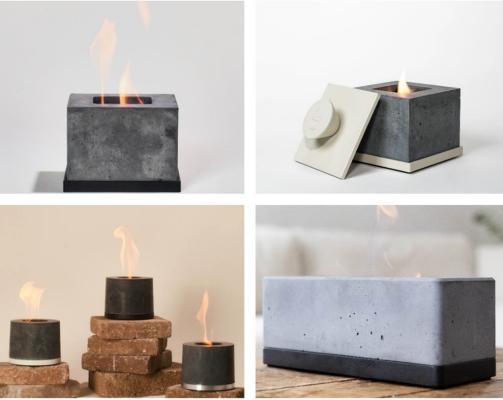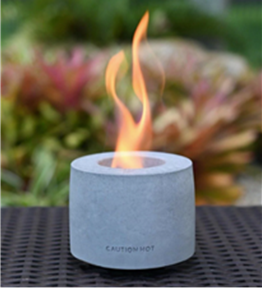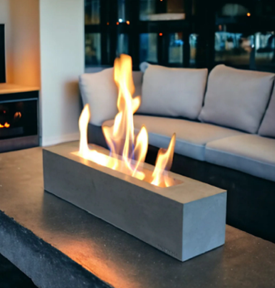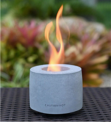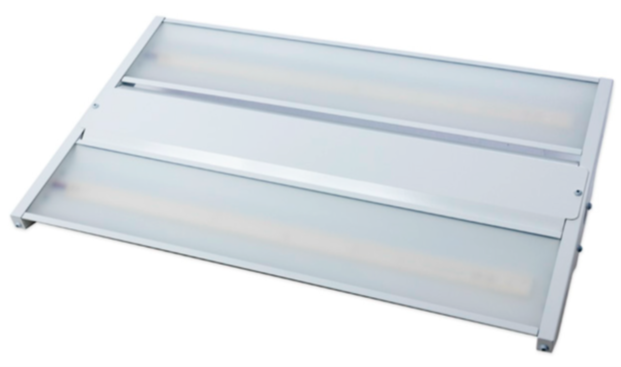Fire pits that require consumers to pour isopropyl (rubbing) alcohol or other liquid fuel into an open container or bowl and then ignite the pooled liquid in the same location it was poured violate the requirements in voluntary safety standard ASTM F3363-19.
Flame jetting, a second hazard, can occur when refilling alcohol or other liquid-burning fire pits if any flame is present.
Consumers should immediately stop using and dispose of these products. Sellers should stop selling these products.
Product Safety Warning Details
Washington, D.C. -- The U.S. Consumer Product Safety Commission (CPSC) is urging consumers not to buy or use fire pits meant to burn pooled alcohol or other liquid fuel. These products are also sold as tabletop fire pits, fire pots, miniature fireplaces, or portable fires for indoor use. Consumers should immediately stop using and dispose of these products. Sellers should stop selling these products.
These fire pits are extremely dangerous and have been associated with two deaths and at least 60 injuries since 2019. This CPSC consumer alert follows the agency’s recent warning to stop using FLIKRFIRE Tabletop Fireplaces and the recall of Colsen-branded tabletop fire pits.
Fire pits that require consumers to pour isopropyl (rubbing) alcohol or other liquid fuel into an open container or bowl and then ignite the pooled liquid in the same location it was poured violate the requirements in voluntary safety standard ASTM F3363-19. ASTM F3363-19 is designed to prevent pool fires in which flames burn along the surface of pooled or spilled flammable liquids, and flame jetting in which flames erupt from containers of liquid fuel.
Isopropyl (rubbing) alcohol, ethanol/bioethanol, and similar liquid fuels burn with flame temperatures over 1,600°F and can cause third degree burns in less than one second. Igniting a pool of alcohol or other liquid fuel in a fire pit’s open container creates an uncontrollable pool fire, which can suddenly produce larger, hotter flames that can spread beyond the fire pit product.
Flame jetting, a second hazard, can occur when refilling alcohol or other liquid-burning fire pits if any flame is present. A small flame in the fire pit can be hard to see and can ignite alcohol or other liquid fuel as it is poured, causing an explosion that propels flames and burning liquid onto the consumer or bystanders. CPSC’s flame jetting safety video demonstrates the potential force of flame jetting and the long distances flames and burning liquid can travel.
The hazardous alcohol or other liquid-burning fire pits are sold by many retailers and e-commerce sites. CPSC urges consumers to immediately stop use and dispose of these alcohol or other liquid-burning fire pits, and for sellers to stop selling them.
Report a dangerous product or a product-related injury on www.SaferProducts.gov.
These fire pits have been associated with two deaths and at least 60 injuries since 2019.
Note: Individual Commissioners may have statements related to this topic. Please visit www.cpsc.gov/commissioners to search for statements related to this or other topics.
The U.S. Consumer Product Safety Commission (CPSC) is charged with protecting the public from unreasonable risk of injury or death associated with the use of thousands of types of consumer products. Deaths, injuries, and property damage from consumer product-related incidents cost the nation more than $1 trillion annually. CPSC's work to ensure the safety of consumer products has contributed to a decline in the rate of injuries associated with consumer products over the past 50 years.
Federal law prohibits any person from selling products subject to a Commission ordered recall or a voluntary recall undertaken in consultation with the CPSC.
- Visit CPSC.gov.
- Sign up to receive our email alerts.
- Follow us on Facebook, Instagram @USCPSC and Twitter @USCPSC.
- Report a dangerous product or product-related injury on www.SaferProducts.gov.
- Call CPSC’s Hotline at 800-638-2772 (TTY 800-638-8270).
- Contact a media specialist.

